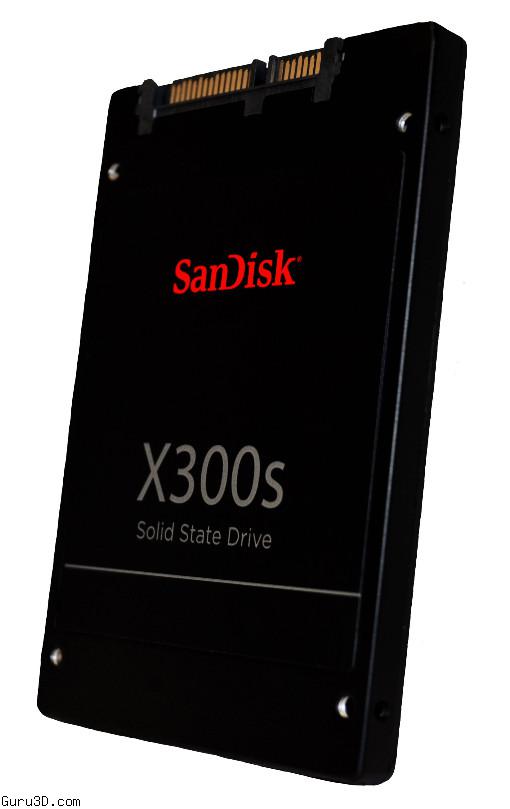SanDisk announced the availability of the company's first, self-encrypting solid state drive (SSD) - the SanDisk X300s SSD. Leveraging TCG Opal 2.0 and Microsoft Encrypted Hard Drive hardware-based encryption, coupled with a new SSD administration dashboard for easier audit and compliance management, the new X300s SSD delivers maximum data protection and performance to help address IT decision makers' top data management and security challenges.
In making today's announcement, SanDisk also unveiled a broad ecosystem of independent software vendors (ISV) that enables enhanced security scalability of the X300s SSDWith today's expanding mobile workforce and increasingly aggressive threat landscape, corporate data is at greater risk than ever before. According to a 2013 survey by Forrester research, 32 percent of all breaches are due to the loss or theft of corporate laptops. Additionally, between June 2012 and June 2013, business travelers lost over 10,000 laptops, smartphones, tablets and other personal electronic devices in seven of the largest airports in the world. Given these challenges, it is imperative that companies look for certified storage solutions to help protect corporate IP and employee data.
"Businesses of all sizes want computers that are reliable, secure, built to last and are easy to support remotely," said Kevin Conley, senior vice president and general manager, client storage solutions at SanDisk. "For the enterprises that deploy hundreds or even thousands of laptops, it's essential that their IT departments be able to centrally and securely manage these devices. The X300s, designed with SanDisk's world-class flash, helps corporate IT leaders not only deliver the heightened performance and lower TCO that flash is known for, but also addresses data protection and security needs, without business disruption."
The SanDisk X300s provides CIOs and IT decision makers with a reliable storage solution that addresses the reduced TCO, data loss prevention, compliance and higher business productivity needs of today's corporate environments. The drive utilizes an AES 256-bit FIPS 197 certified hardware crypto engine to enable full-disk encryption without the performance penalty experienced by the use of software-based encryption. It is built to be compatible with TCG Opal 2.0 and Microsoft Encrypted Hard Drive and is compliant with industry-standard security specifications including IEEE 1667. Additionally, it features advanced power management with DEVSLP low-power mode, enabling Microsoft InstantGo.
Data encryption is critical to guarding sensitive corporate IP and can help healthcare, financial services and education organizations remain in compliance with industry regulations. For this reason, each X300s SSD comes exclusively equipped with Wave System's EMBASSY Security Center (ESC) as part of the upcoming SanDisk SSD Dashboard software suite. Wave's ESC is a local client application that manages the X300s by determining who can access the encrypted data via user and password set-up. The inclusion of Wave's ESC on each X300s SSD distinguishes SanDisk as the only drive manufacturer to include local management with each drive. Moreover, it's provided at no additional cost.
In addition to delivering encryption capabilities to address today's corporate security concerns, the SanDisk X300s SSD is also well-suited for use as a high performance storage component for design-in scenarios, enabling OEM manufacturers to speed the delivery of new products to market. The SanDisk X300s SSD will be available in June through the SanDisk Commercial Business Channel (CBC) in two form factors, 2.5" 7 mm and M.2 2280 single-sided, with capacities of 64 GB, 128 GB, 256 GB, 512 GB, and 1 TB. Capacities up to 512 GB will be supported on the M.2 2280 single-sided design form factor, enabling thinner computing designs.
Additionally, the SanDisk SSD Dashboard equipped with Wave ESC will be available in early June 2014.


